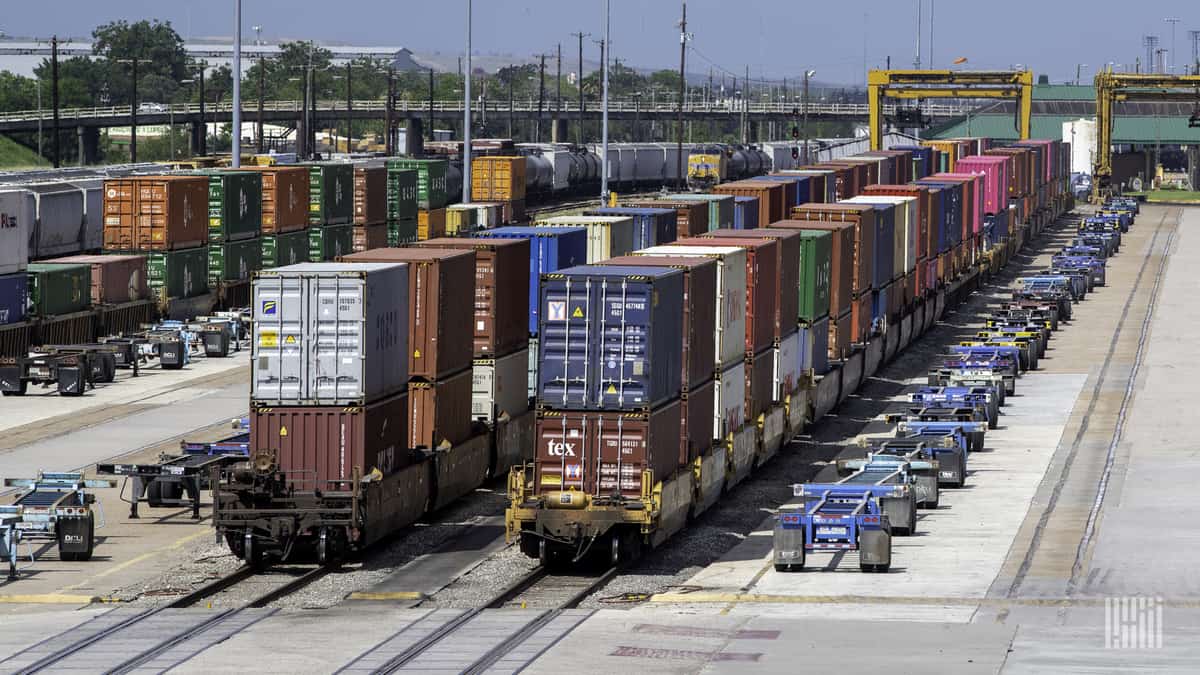There’s a reductive and naive story about intermodal in which it grew faster in the 1990s and 2000s and eventually reached a level of equilibrium. Shippers were moving as much freight by intermodal, which was slower and less responsive, as they wanted, and anyway the railroads didn’t want to let lower-revenue intermodal freight dominate their books of business. Eventually, intermodal settled into a balance with truckload where it acts as a kind of safety valve, only tightening and getting expensive when trucking markets are melting up.
That simplistic narrative has broken down over the past few years. First, precision scheduled railroading (PSR) changed intermodal operating strategies, reduced capacity and lanes, rationalized schedules, and sped up trains. Then the trade wars with China and the COVID-19 pandemic created a series of rolling volatility events that threw intermodal networks out of balance and generated complex volume/capacity dynamics that were largely independent of trucking cycles. Those processes have tended to decouple intermodal from trucking markets — to make intermodal more independent and less tied to relative capacity in trucking.
But what we’re seeing now is that conversations between transportation providers and shippers about contract rates are starting in both modes, truckload and intermodal. Although the conversations may be occuring for different reasons, they’re coinciding in a way that suggests shifting ground in North American surface transportation as a whole.
Members Only
You have selected content that's only available to members of FreightWaves Passport. As a member, you gain immediate access to the most in-depth and informative freight research available. It's your gateway to continuing education.
Members also get:
- Access to exclusive community dedicated to discussing the most important challenges facing freight.
- Monthly and Quarterly Freight Market reports keeping you informed of industry trends.
- Much, much more!
Click below to learn more and sign up today!
Subscribe
Existing Passport subscribers may log in using the form below.





